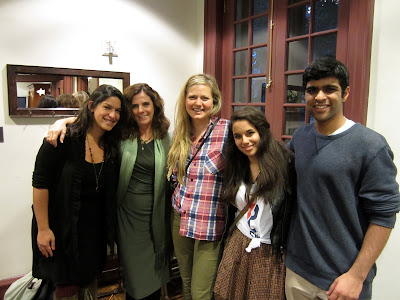I should have seen her talk: Eileen Myles, Chelsea Girls
Wednesday, July 6, 2016
So I didn't see Myles talk. And my students—David, Nina—they shook their heads. David said, Here, borrow my book, but of course I would not take it, for he'd written his own words next to hers and his whole body spoke of admiration. Nina said, She really was so good, she really was (Nina's gorgeous big eyes looking so sad for me). I shook my head, apologized.
Then I bought Chelsea Girls. I shook my own head at me. Because Myles writes like somebody smart might talk—rapid fire, scandalous, self-enthralled and self negating. She is beautiful and demanding. She needs and she takes. She hopes her poetry is part of her goodness, she steals from her affairs, she thinks a lot about what she wears (orange pants and bleachy shorts and Madras shirts and nothing), she has a lot of sex. And by the way, this is not memoir (it says novel on the cover), but the character is Eileen Myles and in the novel Eileen Myles does a lot of stuff (gets her photo taken by Robert Mapplethorpe, say) that Eileen Myles actually does in real life.
What I liked most: the nearly inscrutable ineluctable gorgeous stuff that forces your reading eye to stop. Sentences like these:
The whole process of your life seemed to be a kind of soft plotting, like moving across a graph which was time, or the world.
You knew she was a good person because she held back at moments of deepest revelation. She did not spill, and I always felt that to push her a bit would be sloppy and expose my own lack of a system of conduct.
You can't force a story that doesn't want to be told.
It's lonely to be alive and never know the whole story. Everyone must walk with that thought. I would like to tell everything once, just my part, because this is my life, not yours.
What I think: Like Anne Carson, Maggie Nelson, Paul Lisicky, Sarah Manguso, others, Myles is a form breaker, a smasher-up of words, a funny person with a serious talent. I should have seen her talk. Read more...

































